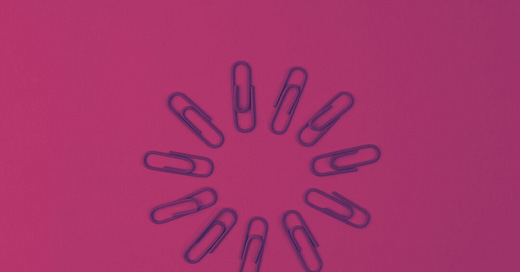Is It Safe to Get Pregnant Now?
Plus, the links: RFK Jr.'s plans for public health, finding hope in difficult times, and more

Welcome to another installment of the Rethinking Wellness link roundup, a week earlier than usual. (I typically post these every other week, and we’ll hopefully get back to that schedule going forward.) In these roundups I offer a small collection of links from around the internet that are relevant to the conversations we have here, along with some quick takes and occasional deeper dives for paid subscribers.
This time the take/dive is about whether it’s safe to (intentionally) get pregnant now that there’s a real possibility of a national abortion ban, which is why I’m sending this early—I know this is a timely question for many people right now.
Links
Here are some pieces that got me thinking in the past few weeks. I found value in all of these, but links are not endorsements of every single detail in the piece or everything the writer ever wrote.
What Impact Could RFK Jr. Have on Public Health? (The Cut)
R.F.K. Jr. Lays Out Possible Public Health Changes Under Trump (NYT)
)Where We Go From Here (Offline)
)In Case You Missed It
Chronic Illness, Orthorexia, and Alternative Medicine with Asher Pandjiris
Take/Dive: Is It Safe to Get Pregnant Now?
I’m trying to get pregnant and am worried that a national abortion ban would put me at risk if I had complications or a miscarriage. I’ve read horror stories about women dying from these problems in states with abortion bans, because ERs denied them lifesaving care for fear of unintentionally violating the bans. I live in a blue state where reproductive freedom is written into the constitution, but a federal ban could override that. Is it safe to get pregnant now? How soon could a Trump abortion ban go into effect? And what about IVF—is that at risk too?
First and foremost, I want to say that no one should have to be in this position. You’re definitely not alone—thousands of people have been voicing similar concerns over the past week, and I have a personal connection to this question as well (more on that shortly). I hate that we even have to think about these issues, when reproductive rights should be a given—and when they clearly have strong support among a large majority of voters. It’s totally understandable that many of us are feeling deep anxiety about what the future holds, on this and many other issues.
But anxiety can start to run amok in times like this, as it often does for me, and I think it’s helpful to try to anchor ourselves with concrete facts.
So to that end, I reached out to two experts: a fertility doctor and a legal scholar specializing in reproductive rights. What they said was helpful for thinking through this particular question of whether it’s safe to get pregnant now—and relatively reassuring, though the future of reproductive freedom overall still looks uncertain and potentially bleak, especially for the people with the fewest resources.
“I think anti-abortion groups at the moment are pretty convinced that Congress isn’t going to pass any kind of ban,” said Mary Ziegler, a law professor at UC Davis and a leading historian of reproductive rights in the U.S. She told me that although Donald Trump doesn’t necessarily care about public opinion because he can’t run for office again, many congressional Republicans can and will—and a national abortion ban would probably be unpopular enough to put their political future at risk. What’s more, “Trump is not particularly interested in reproductive issues compared to other things,” Ziegler said. “So he’s not likely to put that much of a thumb on the scale to push Republicans to pass a ban.”
The bigger risk, she said, is if Trump decides to enforce the Comstock Act—an obscenity law from 1873 that criminalizes the mailing of medications or tools related to abortion. Comstock was superseded by the Roe v. Wade decision a century later but remained on the books. Now that Roe is gone, Comstock could theoretically function as a national abortion ban without Congress having to do anything.
But whether the law would or could actually be enforced as a ban is still an open question, Ziegler said.



